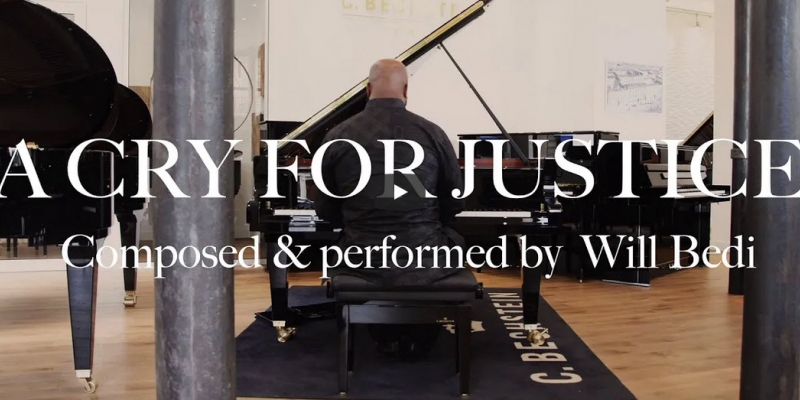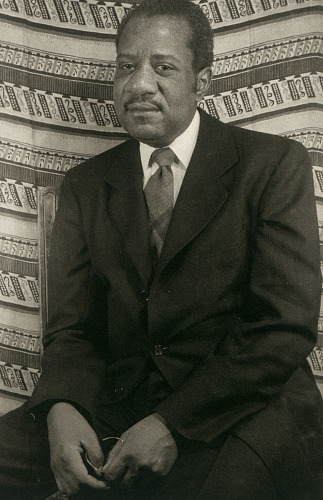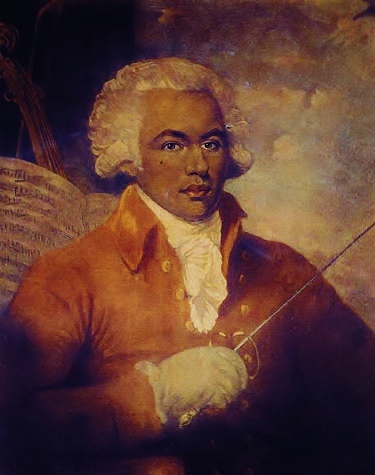
Thursday, October 7th, 2021
Three Black Classical Music Composers
Cover image: Screenshot of promotional frame for YouTube video of A Cry for justice op 20
I recently learned about an African-American classical music composer and concert pianist who lives in Paris. Will Bedi wrote A Cry for justice op 20 "in honor of all the blacks pioneers and victims of injustice around the world." Listen to his beautiful work by clicking on the image below.
When I found out about Bedi, I immediately thought of two other black men who composed classical music and spent time in Paris.
Howard Swanson (1907-1978) was a native of Atlanta, Georgia. He studied piano at the Cleveland Institute of Music and graduated with a Bachelor’s degree in music theory.

Photograph © Carl Van Vechten Trust
Gravure and compilation ©Eakins Press Foundation
Image credit: National Portrait Gallery, Smithsonian Institution
Swanson received three awards that allowed him to move to Paris: a Rosenwald Fellowship In 1939, and a Guggenheim award and a grant from the National Academy of Arts and Letters in 1952. His first stay, during which he studied with renowned instructor Nadia Boulanger, was interrupted due to Germany's invasion of France in 1940. His second sojourn lasted for 14 years; he returned to the U.S. in 1966.
Swanson is best known for his compositions based on the poetry of Langston Hughes and Paul Lawrence Dunbar. He became widely recognized for his work when Marian Anderson first performed his composition for Hughes' "The Negro Speaks of Rivers" at Carnegie Hall on January 15, 1950.
Anderson subsequently included this work in her repertoire and performed it during her farewell concert tour in 1964-65. Listen to her (remastered) performance HERE.
Centuries earlier, Joseph Boulogne, AKA Chevalier de Saint-George (1745-1799), made a name for himself in Paris.
 Portrait of Joseph Boulogne de Saint-George
Portrait of Joseph Boulogne de Saint-George
1788 Engraving by William Ward (inspired by the painting by Mather Brown)
Image in the public domain
Boulogne was the son of a French aristocrat and an enslaved African woman. He was born in Guadeloupe and educated in France. In addition to being a gifted violinist, prolific composer, and orchestra leader, he was also a superb athlete who excelled at fencing. He was the first colonel of African descent to serve in the French military and he created a regiment of black and mixed race soldiers called the Légion St.-Georges. Alexandre Dumas père's father, Thomas-Alexandre Dumas Davy de la Pailleterie, served as an officer in this brigade.
Boulogne wrote numerous operas, symphony concertantes, violin concertos, sonatas, and more. He was nominated to take over the Paris opera, but withdrew his name from consideration when three women singers refused to work under him because of his race. He hobnobbed with royalty and the aristocracy, being favored by Queen Marie Antoinette, the Marquise de Montesson, and the duc d'Orléans.
A French association called Le Concert de Monsieur de Saint-George has undertaken the task of preserving and promoting Boulogne's legacy. Find its Website (in French) HERE.
To read a detailed biography about Boulogne, click HERE.
To read the 2020 NYTimes article about him and to listen to several recordings of his music, click HERE.

 Our Walk: Black History in and around the Luxembourg Garden - Click here to book!
Our Walk: Black History in and around the Luxembourg Garden - Click here to book!